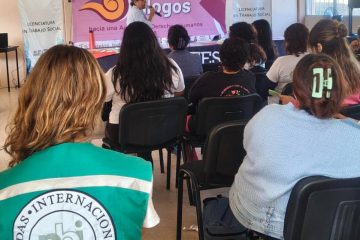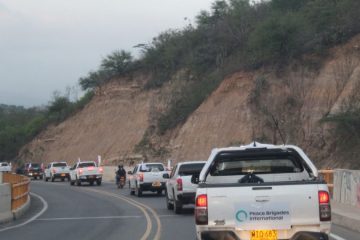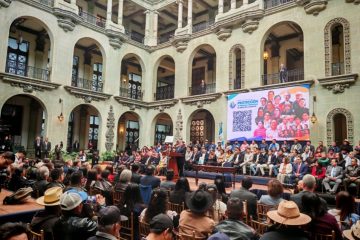PBI-Honduras visits Travesía as ancestral Garifuna lands continue to be sold to private developers, agribusiness without consent
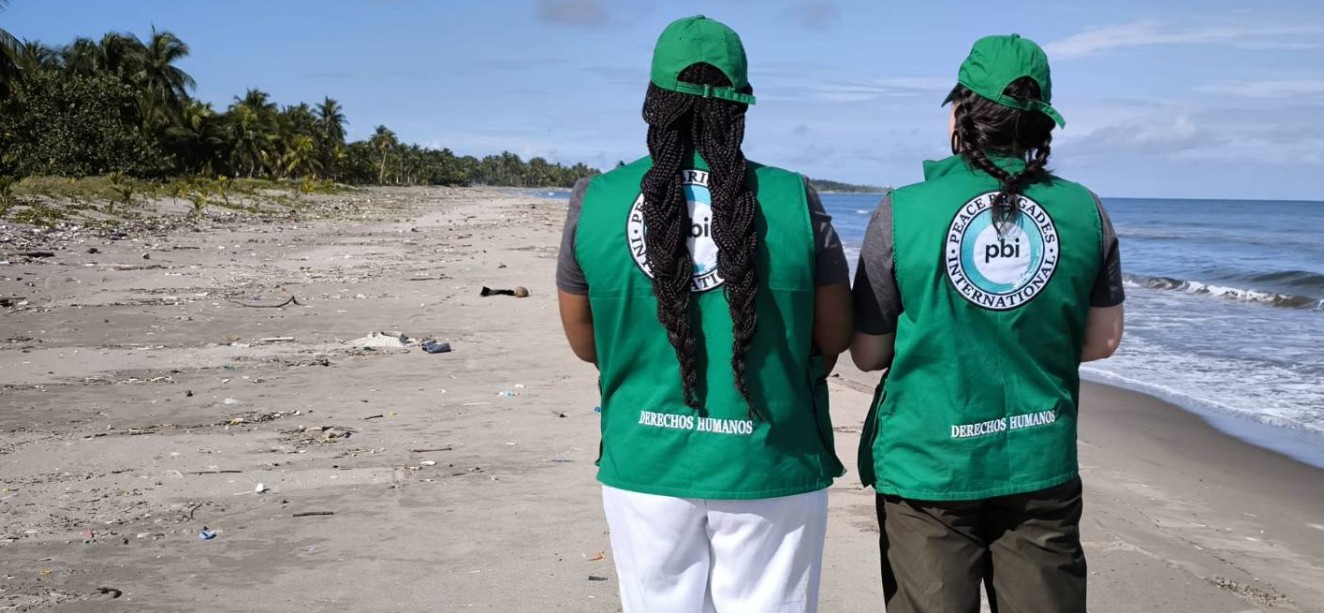
The Peace Brigades International-Honduras Project has posted on social media:
“Last week, we visited the Garifuna community of Travesía (Cortés). In 2011, the Honduran Black Fraternal Organisation (OFRANEH) filed a complaint with the Inter-American Commission on Human Rights (IACHR) for alleged violation of the right to collective property and prior consultation. The community of Travesía alleges that the title deed granted by the National Agrarian Institute in 1997 does not match their ancestral title, leaving them unprotected against the transfer of land to tourism projects.”
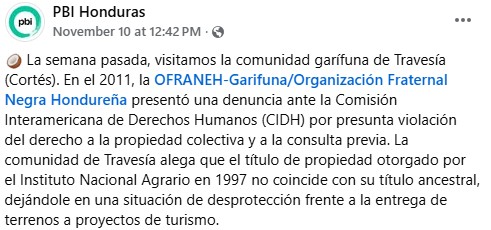
In July 2024, Mongabay provided this additional context:
“Since the early 17th century, the Garifuna Afro-Indigenous peoples of Honduras have lived on the country’s northern Caribbean coast, where they collectively own large tracts of rich coastal land and sustain their livelihoods on subsistence agriculture and small-scale fishing. But ever since palm oil plantations, tourist developments and other harmful practices have expanded across their ancestral lands and their way of life and territory have been under threat.
“Our communities are facing a war,” Miriam Miranda, a Garifuna human rights defender and leader of the Black Fraternal Organization of Honduras (OFRANEH), told Mongabay over WhatsApp messages. “Today, we no longer plant corn, beans and rice on the coast,” she said. “Our territories have been filled with African palm oil.”
Land purchase agreements on Garifuna territory have been supported by the World Bank and the International Monetary Fund (IMF). Other agencies, such as the Inter-American Development Bank (IDB), have also provided loans to expand plantations in the area.
Garifuna leaders and human rights organizations, such as OFRANEH, have denounced the Honduran state for selling their ancestral lands to private developers, agribusiness and drug traffickers without their consent and argue that the government has failed to recognize, respect or protect their fundamental rights.
Since 2018, more than 150 Garifuna peoples have been killed, 37 criminalized and five forcibly displaced. In 2023, four Garifuna leaders were murdered, including Martín Morales Martínez, a member of the commission set up to ensure the state complies with the 2015 Inter-American Court ruling. Morales was also a part of the Committee for the Defense of the Land in Triunfo de la Cruz. Earlier, in 2020, four Garifuna leaders had disappeared after a group of 30 heavily armed men in police uniforms were seen entering their homes. These leaders were never seen again.”
The full Mongabay article can be read at Garifuna land rights abuses persist in Honduras, despite court ruling (Aimee Gabay, July 17, 2024).
We continue to follow this.
Additional reading
U.S. and Canadian tourism investors at center of land conflicts and criminalizations of Indigenous Garifuna people in Honduras (Karen Spring, Honduras Solidarity Network, August 26, 2025)
OFRANEH denounces Canadian Randy Jorgensen for trafficking archaeological items, usurpation of Garifuna lands (PBI-Canada, November 28, 2024)
PBI-Honduras visits Garifuna community of Nueva Armenia following police violence after recovery project (PBI-Canada, November 3, 2024)
‘Little Canada’ displacing Afro-Indigenous communities in Honduras (Sandra Cuffe, Ricochet, December 5, 2014).
